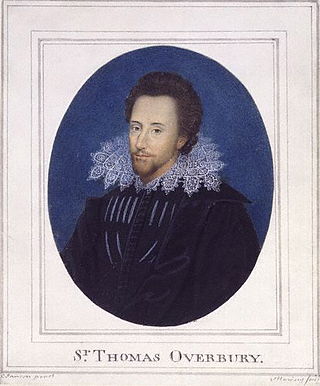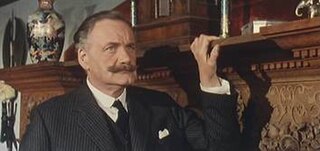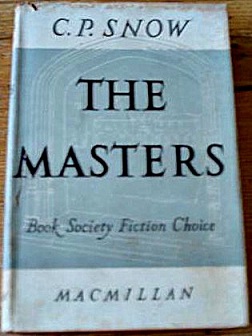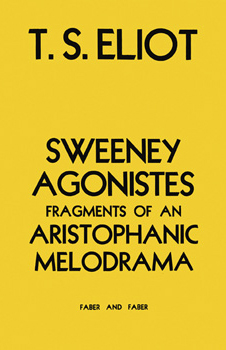
Sir Alan Arthur Bates was an English actor who came to prominence in the 1960s, when he appeared in films ranging from the popular children's story Whistle Down the Wind to the "kitchen sink" drama A Kind of Loving.

Sir Thomas Overbury was an English poet and essayist, also known for being the victim of a murder which led to a scandalous trial. His poem A Wife, which depicted the virtues that a young man should demand of a woman, played a large role in the events that precipitated his murder.
This article contains information about the literary events and publications of 1663.

Edward Charles Morice Fox is an English actor and a member of the Fox family.

Tender Is the Night is the fourth and final novel completed by American writer F. Scott Fitzgerald. Set in French Riviera during the twilight of the Jazz Age, the 1934 novel chronicles the rise and fall of Dick Diver, a promising young psychiatrist, and his wife, Nicole, who is one of his patients. The story mirrors events in the lives of the author and his wife Zelda Fitzgerald as Dick starts his descent into alcoholism and Nicole descends into mental illness.

Cecil Parker was an English actor with a distinctively husky voice, who usually played supporting roles, often characters with a supercilious demeanour, in his 91 films made between 1928 and 1969.
Sir Ronald Harwood was a South African-born British author, playwright, and screenwriter, best known for his plays for the British stage as well as the screenplays for The Dresser and The Pianist, for which he won the 2003 Academy Award for Best Adapted Screenplay. He was nominated for the Best Adapted Screenplay Oscar for The Diving Bell and the Butterfly (2007).

Francis Henry Durbridge was an English dramatist and author, best known for the creation of the character Paul Temple, the gentlemanly detective who appeared in 16 BBC multi-part radio serials from 1938 onward.

Sir Francis Drake is a 1961–1962 British adventure television series starring Terence Morgan as Sir Francis Drake, commander of the sailing ship the Golden Hind. As well as battles at sea and sword fights, the series also deals with intrigue at Queen Elizabeth's court.

Howard Marion-Crawford, the grandson of writer F. Marion Crawford, was an English character actor, best known for his portrayal of Dr. Watson in the 1954 television adaptation of Sherlock Holmes.

The Thrill of It All is a 1963 American romantic comedy film directed by Norman Jewison and starring Doris Day and James Garner, with a supporting cast featuring Carl Reiner, Arlene Francis, Reginald Owen and ZaSu Pitts. The screenplay was written by Carl Reiner from a story by Larry Gelbart.
T. S. Eliot's Ariel poems are those written for Faber and Faber's series of Ariel Poems. All but "Triumphal March" also appear in his book Collected Poems: 1909–1962 under the heading Ariel Poems.
Terence de Vere White was an Irish lawyer, writer and editor.

Mary Boleyn, also known as Lady Mary, was the elder sister of English queen consort Anne Boleyn, whose family enjoyed considerable influence during the reign of King Henry VIII.

Five Weeks in a Balloon is a 1962 American adventure film loosely based on the 1863 novel of the same name by Jules Verne filmed in CinemaScope. It was produced and directed by Irwin Allen; his last feature film in the 1960s before moving to producing several science fiction television series. Although set in Africa, it was filmed in California. Balloonist Don Piccard acted as the film's technical advisor. For visual effects, a model of the balloon was used as well as a full-sized unicorn gondola hung from a crane. A novelisation of the screenplay was written by Gardner Fox.

The Masters is the fifth novel in C. P. Snow's series Strangers and Brothers. It involves the election of a new Master at narrator Lewis Eliot's unnamed Cambridge College, which resembles Christ's College where Snow was a fellow. The 1951 novel's dedication is "In memory of G. H. Hardy", the Cambridge mathematician. It was the first of the Strangers and Brothers series to be published in the United States.

Sweeney Agonistes by T. S. Eliot was his first attempt at writing a verse drama although he was unable to complete the piece. In 1926 and 1927 he separately published two scenes from this attempt and then collected them in 1932 in a small book under the title Sweeney Agonistes: Fragments of an Aristophanic Melodrama. The scenes are frequently performed together as a one-act play. Sweeney Agonistes is currently available in print in Eliot's Collected Poems: 1909–1962 listed under his "Unfinished Poems" with the "Fragments of an Aristophanic Melodrama" part of the play's original title removed. The scenes are separately titled "Fragment of a Prologue" and "Fragment of an Agon".
Sir Henry Clithering is a fictional character who appears in a series of short stories by Agatha Christie, featuring Jane Marple. The stories were first published in monthly magazines starting in 1927, and then collected into a hard-bound collection, The Thirteen Problems in 1932. Clithering also appeared in several novels featuring Miss Marple.
"The Affair" is a 1965 Australian television play based on the novel by C. P. Snow. It starred Roger Climpson, Richard Meikle and Anne Haddy and aired on the ABC as part of Wednesday Theatre.

The Affair is the eighth book in C. P. Snow's Strangers and Brothers series. The events return to the Cambridge college of The Masters. It is once again narrated by Lewis Eliot.